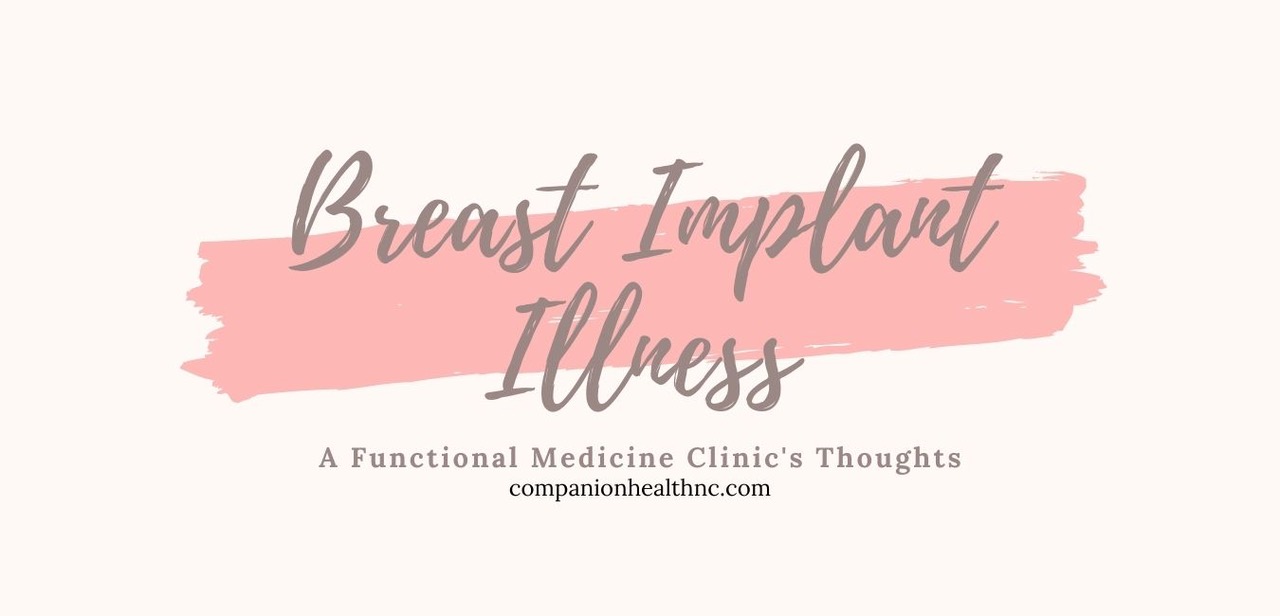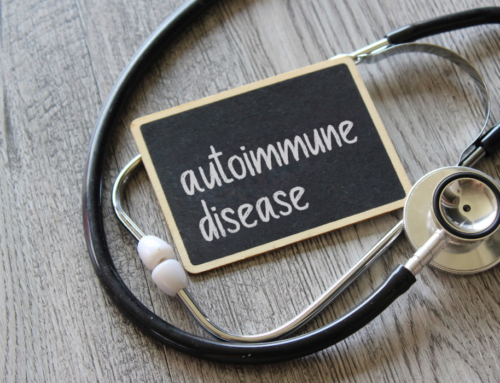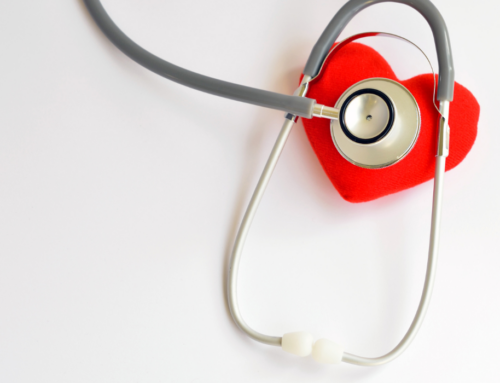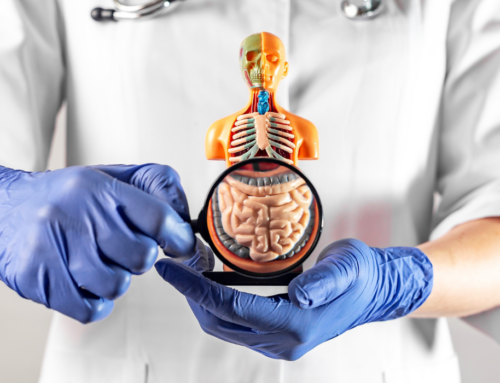
Breast Implant Illness: Thoughts From a Functional Medicine Clinic
Breast Implant Illness: Thoughts From a Functional Medicine Clinic
Kiran Dodeja Smith, one of the health coaches at Companion Health in Charlotte, North Carolina, had her breast implants removed earlier this year. She’s speaking on her personal experience while Dr. Carlos Jorge, MD chimes in from a functional medicine doctor on his opinion of explant surgery in the video below. But first, let’s take a look at the topic: what is breast implant illness from a functional medicine perspective.
What is Breast Implant Illness (BII)?
Breast Implant Illness is a term used by some doctors and women that can result from a reaction to breast implants either from reconstruction or from a cosmetic procedure. Though this is a highly debated subject, from a functional medicine perspective, the belief is that breast implants, like many other foreign objects that are placed in the body, cause an inflammatory response. In fact, the term ASIA is also used which means autoimmune/inflammatory syndrome induced by adjuvants.
One of the reasons that the topic is highly debated is that some people don’t notice any symptoms from their implants, while others do. Because the list of potential symptoms is so large, and can easily be tied to simply getting older, women sometimes don’t connect the symptoms as a reaction. Symptoms don’t always appear right away, either. In hindsight, in my case, I believe that my body was reacting right away. My first symptom was developing chemical sensitivities, and my next was developing Raynaud’s Syndrome. You can read more of my story with explant surgery here.
Breast Implant Illness symptom list:
Symptoms of breast implant illness include the following, and can be caused by all types of implants – silicone gel-filled, saline-filled, smooth surface, textured, teardrop or round. Because breast implants can affect most systems in the body, they can be related to chemical and heavy metal toxicity, biotoxicity, immune dysfunction, auto-immune symptoms and disorders, neurological symptoms, endocrine symptoms and metabolic symptoms.
❏ Fatigue
❏ Brain fog, memory loss, cognition problems
❏ Muscle pain and weakness
❏ Joint pain of neck, shoulder, back, hip, knee, hands/feet
❏ Hair loss, dry hair
❏ Premature aging of skin
❏ Skin itching, various rashes
❏ Weight problems
❏ Slow recovery after exercise
❏ Vertigo
❏ Headaches, migraines, ocular migraines
❏ Throat clearing, cough, difficulty swallowing, choking
❏ Reflux, GERD
❏ Nausea, gastritis, leaky gut, SIBO
❏ Irritable Bowel Syndrome
❏ Fevers, night sweats, heat intolerance
❏ Persistent bacterial and viral infections
❏ UTI infections, Interstitial Cystitis
❏ Yeast infections, Candida, Sinusitis (fungal)
❏ Ear ringing
❏ Metallic tastes
❏ Sudden new food intolerances and allergies
❏ Heart Palpitations, heart changes, heart pain
❏ Blood pressure problems
❏ Swollen and tender lymph nodes of breast and underarm
❏ Inflammation
❏ Insomnia and poor sleep
❏ Dry eyes, decline in vision
❏ Hypothyroid
❏ Adrenal fatigue
❏ Parathyroid problems
❏ Diminishing hormones, early menopause, hysterectomy
❏ Low libido
❏ Slow healing, easy bruising
❏ Bouts of dehydration for no reason
❏ Frequent urination
❏ Numbness and tingling in limbs
❏ Cold and discolored hands and feet
❏ Chest discomfort, shortness of breath
❏ Pain or burning around implant and underarm
❏ Liver problems
❏ Kidney problems
❏ Gallbladder problems
❏ Pancreatitis
❏ Depression, anxiety, panic attacks
❏ Feeling like you are dying
❏ Symptoms or diagnoses of Fibromyalgia
❏ Symptoms or diagnoses of EBV
❏ Symptoms or diagnoses of Lyme
❏ Symptoms or diagnoses of autoimmune diseases such as Raynaud’s Syndrome, Hashimoto’s, Addison’s Disease, Graves Disease, Rheumatoid Arthritis, Scleroderma, Lupus, Sjogren’s Syndrome, Unspecified Connective Tissue Disease, POTS, Ankylosing Spondylitis, Multiple Sclerosis and others
❏ Symptoms or diagnoses of BIA-ALCL lymphoma
❏ Symptoms or diagnosis of other cancers known to be associated with breast implants such as Melanoma, brain cancer, Myeloma, respiratory cancer, various breast cancers, various lymphomas, various carcinomas and sarcomas
(Source)
Is Breast Implant Illness real?
In 2018, the largest study ever published illustrated that silicone breast implants are associated with an increased risk of autoimmune diseases including Sjogren’s, Scleroderma, Rheumatoid Arthritis, stillbirths and melanoma cancers.
In February 2019, the FDA issued a statement to health care providers in an effort to increase awareness about an association between all breast implants, regardless of filing or texture, and Breast Implant Associated-Anaplastic Large Cell Lymphoma (BIA-ALCL). Within this, they reported that patients with breast implants have an increased risk of developing this disease within the scar capsule, which is adjacent to the implant.
In May 2019, the FDA issued a statement acknowledging breast implant illness.
And finally, in July 2020, this study showed a strong association of explantation and specific and continued symptom improvement post explant surgery (removal of breast implants).
Do doctors believe that breast implant illness is real?
Carlos Jorge, MD, triple board-certified in family medicine, lipidology, and functional medicine & anti-aging, states: “Yes, I believe that breast implant illness is real despite the research not yet being conclusive. In rheumatology they call it ASIA–autoimmune syndrome induced by adjuvants. Symptoms are varied and can be joint pain, fatigue, brain fog, muscle pain, fever, hair thinning, and rashes.”
What to consider when getting them removed (explant surgery):
- Look for a board certified plastic surgeon.
- Inquire how many explant surgeries he/she has done. How do they feel about BII? Do they believe in it? Do they put implants in as well as take them out?
- En Bloc is the term for the removal procedure with a Total Capsulectomy. This means removing the capsule tissue. ALL of the capsule tissue should be removed along with the implants for the best recovery from symptoms. If any part of this is not removed, there can be silicone (which is actually what the capsule is made of) still sitting within the body which can keep causing symptoms.
- Look at pictures of past surgeries.
- Ask for realistic expectations of what you will look like post surgery.
What to expect after explant surgery
Normal considerations should be given after surgery, including rest, a clean diet and proper hydration. Since anesthesia is likely used, you’ll want to make sure to keep the water flowing to flush those medications out. Your surgeon will give specific instructions as to mobility/when you can return to normal activities.
Many people have compromised gut health and/or leaky gut as a result of breast implants. It is important to heal the gut, because with this situation, one isn’t able to absorb nutrients as they should and are deficient and often inflamed. To focus on healing the gut, follow an anti-inflammatory diet, avoid processed foods, take pre- and pro-biotics and consult with a doctor if further help is needed. Testing for gut dysbiosis and heavy metal testing are just some of the functional medicine tests that can be done in our Charlotte, NC office.
Removing breast implants is a personal decision that includes physical and emotional healing. There is a large Facebook group which many women are part of before, during and after the procedure. It can be helpful in finding connections, or simply researching. Our health coaches are here to support you with the leadership of Dr. Jorge along your journey should you decide to undergo explant surgery.
This is for general informational purposes only and does not constitute any practice of medicine or professional health care services of any type. The use of information on this blog is at the user’s own risk. The content of this blog is not intended to be a substitute for professional medical advice, for diagnosis, or for treatment. Please seek the care of your health care professionals for any questions or concerns.








